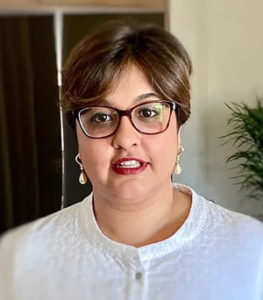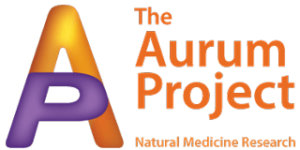An opinion piece about Homeopathy Education by Dimple Kirpalani
The dictionary meaning of the word Difficult is ‘needing much effort or skill to accomplish, deal with, or understand.’
In the world of Homeopathy, the phrase ‘difficult cases’ has become synonymous with a good Homeopathic practice. As we grow as Homeopaths, as our practice grows and as we see success, it is inevitable, that difficult cases become a huge part of our daily practice.
A large number of us unfortunately seem to want to look for easier routes and answers. However, we need to look at the words “skill” and “effort” and understand that if we don’t have any one of those then we are very likely messing up those difficult cases and not solving them.

When we read the published article, The “continuum” of a unified theory of diseases, by Professor George Vithoulkas, he explains, “Through the life of a person, from birth to death, there is a “continuum” in the pathological conditions a person may experience.” The idea here is that suppression of diseases, through excess of chemical drugs or other means, many times overwhelms the body’s natural defences and forces the immune system to compromise and start a deeper line of defence, which then constitutes the beginning of a new chronic condition.
This really explains why some cases are more difficult to treat than others.
Homeopathy was never meant to be easy. In the Organon of Medicine Aphorism 71, Hahnemann explains:
As it is now no longer a matter of doubt that the diseases of mankind consist merely of groups of certain symptoms, and may be annihilated and transformed into health by medicinal substances, but only by such as are capable of artificially producing similar morbid symptoms (and such is the process in all genuine cures), hence the operation of curing is comprised in the three following points:
- How is the physician to ascertain what is necessary to be known in order to cure the disease?
- How is he to gain a knowledge of the instruments adapted for the cure of the natural disease, the pathogenetic powers of the medicines?
- What is the most suitable method of employing these artificial morbific agents (medicines) for the cure of natural disease?
This brings forward one important issue – Homeopathic education. It needs to be aimed at understanding the Organon because therein lies the true understanding of every single principle of Homeopathy.
Add to that the knowledge of the theory of the Levels of Health by Professor George Vithoulkas. Homeopathy is not just another alternative modality. It is a science which means it has rules and those rules must be followed. The Levels of Health is based on Professor’s years of experience as a Homeopath and it is based on the concrete principles of Homeopathy and the understanding of the human body. Once we understand this Theory, we understand the importance of prognosis in every individual case. It is prognosis that helps us know where we are likely to face difficulties and how much progress we can expect with our prescription.
This theory also helps us understand the importance of ‘layers’ in a case. Every individual body responds to its environment differently and the depth of the response can bring on symptoms which then need to be addressed in the order of their occurrence.

The invariable question that then arises: Is solving difficult cases only to be entrusted to senior, very experienced Homeopaths? Answer: Well… experience does bring its own learning and strengths. However, a good Homeopath is one who understands the principles of Homeopathy well, uses the tools of knowledge well and is clear in his/her approach to every case. Following the right steps is important. Being honest in practice and using only that knowledge which is tested over time is important. You may be new to practice but question yourself again and again, “Do I know enough?” and constantly endeavour to learn more and learn from the basics rather than looking at new alternative pathways which have been tested by a few people rather than the Masters. Solving Difficult Cases can then become just another part of being a practitioner and not a problem that makes us anxious.
 Thank you to Dimple Kirpalani for writing this opinion piece, about Clinical Supervision in Homeopathy. Dimple is a Homeopath working in Perth. Originally from Ghana, West Africa, Dimple was educated and trained in India and has over twenty years of experience as a Homoeopath. She has previously been a member of the Ghana Medical and Dental Council and the Ghana Medical Association. A mother of two, Dimple gave up General Practice to concentrate solely on Homoeopathy in 2008, after the birth of her daughter. She has had tremendous experience in the various fields of Medicine and Homoeopathy. She considers herself to have been fortunate to have come across some great teachers and wonderful cases over the years, which have given her tremendous job satisfaction and confidence in her prescribing abilities.
Thank you to Dimple Kirpalani for writing this opinion piece, about Clinical Supervision in Homeopathy. Dimple is a Homeopath working in Perth. Originally from Ghana, West Africa, Dimple was educated and trained in India and has over twenty years of experience as a Homoeopath. She has previously been a member of the Ghana Medical and Dental Council and the Ghana Medical Association. A mother of two, Dimple gave up General Practice to concentrate solely on Homoeopathy in 2008, after the birth of her daughter. She has had tremendous experience in the various fields of Medicine and Homoeopathy. She considers herself to have been fortunate to have come across some great teachers and wonderful cases over the years, which have given her tremendous job satisfaction and confidence in her prescribing abilities.
Dimple loves sharing her knowledge of Homeopathy with students and colleagues. She works as a course coordinator for the International Academy of Classical Homeopathy, Greece, here in Australia. Dimple also runs Holistic Mentoring for Homeopaths from beginners to established practitioners. www.holisticmentoring.net
